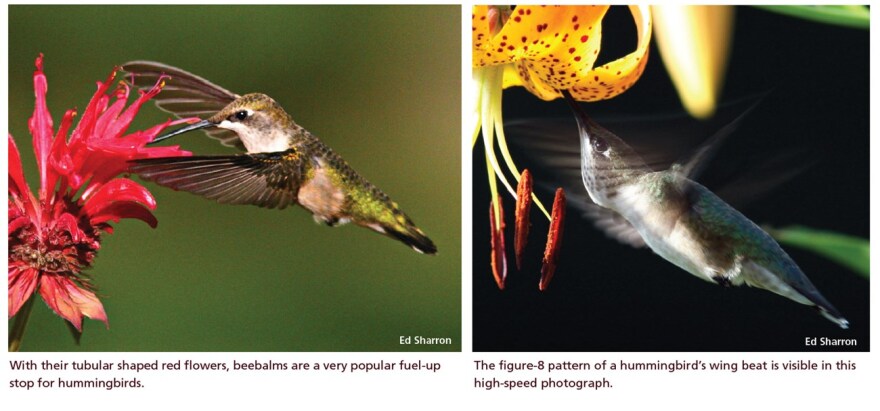As autumn fast approaches, we’re beginning to see more signs of it, from Fall-like temperatures on the way, to bird migrations. “Right now, at our latitude here in the Red River listening area we’ve got southbound red-throated hummingbirds pouring through,” says Cliff Shackelford. Shackelford literally wrote the book on this kind of migration, specifically “Hummingbirds of Texas,” published in 2005. These days Shackelford also hosts the monthly radio show “Bird Calls" on Red River Radio.
Shackelford describes how our region fits into their migration. “These are birds that bred up in Wisconsin, Minnesota Iowa, Indiana, and they are coming South. And they’re just refueling on a long journey, just like we do. When we pull into the fuel station, and we have to fill up our car and our own bellies, so that’s what these hummingbirds are doing.”

Shackelford explains how most of these ruby-throated hummingbirds will winter in Mexico and all the way to Costa Rica – flying as far as four thousand miles. That may help explain why they arrive hungry. “The rule of thumb is for every hummingbird in migration you see at your feeder, there’s that equal amount waiting and loafing in the bushes and in the trees. So, if you’re counting 12 birds at the feeder, there’s probably 24-ish that are actually utilizing your feeders.”
Shackelford encourages people to be open and welcoming to the birds. “They’re totally friendly and they’re fun and they’re just doing their job. You know, they’re part of the group of pollinators that we should be worried about.” That’s because pollinators are the backbone of the reproduction of plants. Alongside bees and wasps, Shackelford emphasizes hummingbirds bring fruits and vegetables to your plate.
Shackelford explains how it all happens. “A pollinator is typically an insect or a hummingbird that are feeding on plants and moving the pollen around from plant to plant. So, the plant needs the hummingbird or the insect to move the pollen. And in exchange it gives it a little sugary sweet treat.”
The ruby-throated hummingbird is one of the few species of birds that are pollinators. So, if you see one, Shackelford suggests saying thanks with a feeder and a cozy resting place in your yard.



